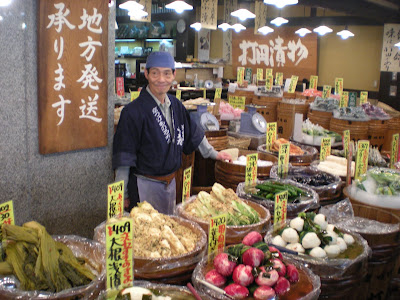After 16 months in Japan, we are moving back to the USA and will not continue to blog here anymore. We feel we've accomplished our goals for the blog which were: 1) Keep in touch with family and friends 2) Keep a record for ourselves of our time here and 3) Give back to the blogosphere a bit since we were helped by many blogs as we prepared to come here and in our first months. Thanks to all who have read. Japan is a fascinating place, it's been quite a ride and we're happy to have had you along, however virtually.
We thought this might be an opportune time to clear up some frequently asked questions.
1. Where does the name of the blog come from?
It’s an homage to the cutest little comic book called Japan Ai: A Tall Girl’s Adventures in Japan by Aimee Major Steinberger which we read before we came. The rest is explained in the banner at the top.
2. Who wrote the posts?
They’re based on shared experiences and conversations but Josie usually wrote the posts and John edited.
3. Who took the pictures?
John mostly took the pictures. Don’t blame him for the subpar ones of late though. Our camera (that we bought for our first trip together to Guatemala and Chiapas, Mexico in 2005) finally died and we’ve just been using a Kodak video camera ever since. Thanks to Josie’s family for a highly used going away present!
1. Where does the name of the blog come from?
It’s an homage to the cutest little comic book called Japan Ai: A Tall Girl’s Adventures in Japan by Aimee Major Steinberger which we read before we came. The rest is explained in the banner at the top.
2. Who wrote the posts?
They’re based on shared experiences and conversations but Josie usually wrote the posts and John edited.
3. Who took the pictures?
John mostly took the pictures. Don’t blame him for the subpar ones of late though. Our camera (that we bought for our first trip together to Guatemala and Chiapas, Mexico in 2005) finally died and we’ve just been using a Kodak video camera ever since. Thanks to Josie’s family for a highly used going away present!
4. Who reads this thing?
We wondered that ourselves for the first few months as our family and friends got used to blog checking. Over time though we've seen hits from Saudi Arabia, Oman, Serbia, Moldova, Brazil, Egypt, Indonesia, South Africa, and more. Mostly it's people in the USA and Japan though.
Arigatou and Sayonara!













